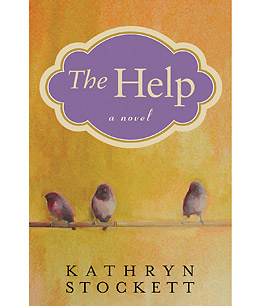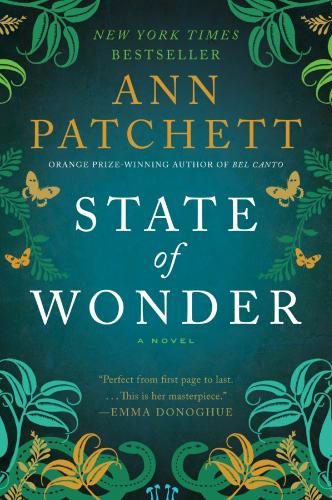 Kathryn Stockett’s debut novel, The Help, was recommended to me by a friend. She described it as a book she just couldn’t put down, a book that allowed to her to immerse herself in a different world. I was eager for a page-turner, but hesitated when I discovered The Help was advertised as a “bestseller,” a label that prompts both curiosity and fear.
Kathryn Stockett’s debut novel, The Help, was recommended to me by a friend. She described it as a book she just couldn’t put down, a book that allowed to her to immerse herself in a different world. I was eager for a page-turner, but hesitated when I discovered The Help was advertised as a “bestseller,” a label that prompts both curiosity and fear.
As I began, I was immediately struck by the accuracy of my friend’s description. After a single paragraph, I felt as if I were thinking from the perspective of an African-American maid, responsible for “taking care of white babies…along with all the cooking and the cleaning” in Jackson, Mississippi, 1962. As I read on, however, I discovered the story is narrated by three different women: two black domestic workers and one white, upper-class daughter of plantation owner. These characters present radically different perspectives, and this is clearly reflected in Stockett’s style and strict attention to character details.
Stockett also employs a controversial method to distinguish her characters: eye dialect, a literary technique in which words are spelled as they are pronounced in a particular vernacular.When the character Aibileen exclaims “Lord!”, for example, the word is written, “Law!”, because that’s how the word sounds when it comes from Aibileen’s mouth.
At first I was a bit startled by this technique, as it is frequently attributed to older works like Mark Twain’s Adventures of Huckleberry Finn, and is sometimes discouraged in contemporary literature. Eye dialect has been criticized as a form of racism, depicting minorities as uneducated or “incorrect.” Mark Twain often replaced the word “civilize” with “sivilize.” Critics argue this kind of substitution is unnecessary because it does not further the understanding of the pronunciation of the word, but is used merely to stress an African-American character’s lack of education.
In my opinion, Stockett’s use of eye-dialect is different than prior use, so it doesn’t seem out-dated. Authors like Twain misspelled and made up new words, intending to depict the pronunciation of a dialect. Stockett doesn’t do this; instead, she only substitutes one word (lord) for another, existing word (law), subtly expressing a dialect’s variance in pronunciation. This variation on eye-dialect does not insinuate that the African-American characters are unintelligent or ignorant; rather, it is incredibly effective in developing character voice, and accurately illustrating the time, place and culture each character embodies. The Help is a riveting novel that discusses a truly difficult time in our nation’s history. Stockett’s inspiring characters and unforgettable use of perspective act as a bridge between races and societies rather than a barrier.
Be sure to check out the motion picture interpretation of The Help, which will be coming to theaters August 12, 2011. The film, directed by Tate Taylor, will star Emma Stone, Viola Davis, and, Octavia Spencer.

